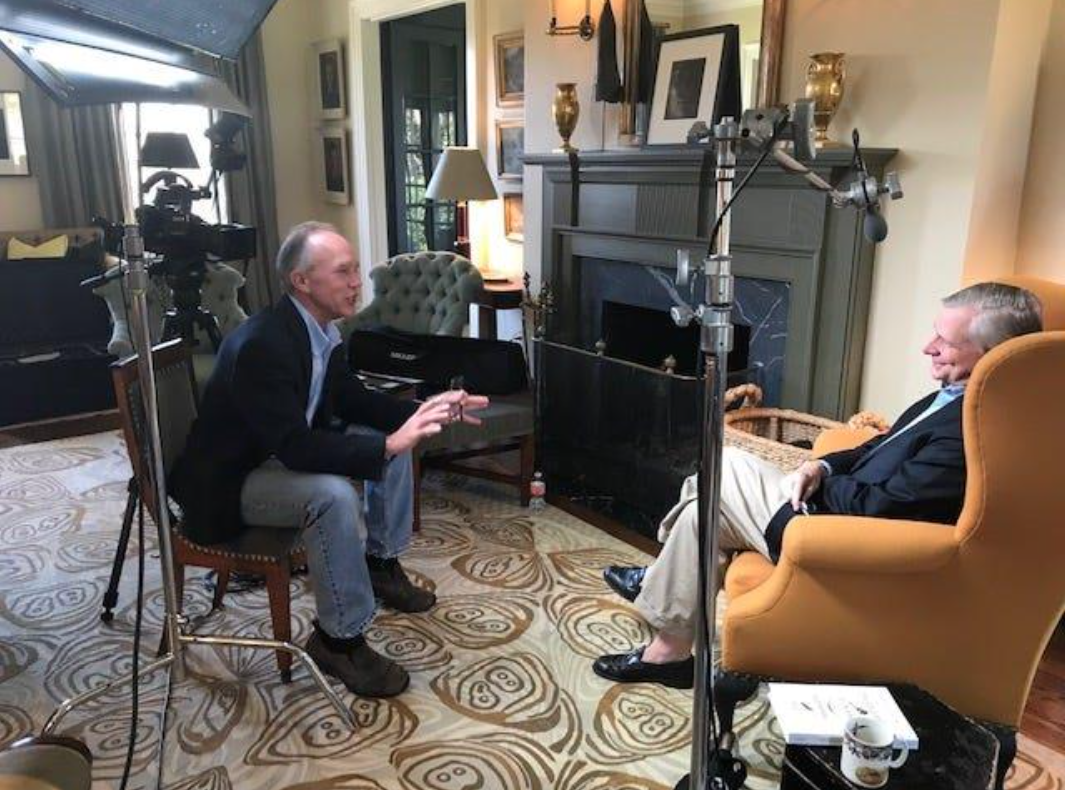Oxford filmmaker chronicles early football feat that became ‘legend’

August 5, 2023
Emmy-nominated work by Oxford filmmaker airs on PBS.
Mary Boyte
Special to the Mississippi Clarion Ledger
In the early days of college football, the plucky Sewanee team cemented its place in football history with an undefeated five-game streak that spanned six days and a 2,500-mile train journey. Legend tells that on the seventh day, they rested.
What that team did in six days took a Mississippi filmmaker half a decade to chronicle, and that passion project now can be seen locally Sunday. Oxford filmmaker David Crews and co-creator Norman Jetmundsen brought this story to life in the Emmy-nominated documentary Unrivaled: Sewanee 1899.
Unrivaled is available to stream on PBS.org. The film will air Sunday at 2 p.m. on Mississippi PBS. The national television debut will follow on the WORLD Channel at 6 p.m. Saturday, Sept. 16.
The film follows the 1899 football team at the University of the South, a liberal arts college located on Cumberland Plateau between Nashville and Chattanooga, also known as Sewanee. The team crosses seven Southern states as they play in the South’s first 12-game season. Five of those games — played all on the road in six days — are firmly rooted in legend. Unrivaled expands the legend — Sewanee finished the season 12-0. But in those six days, they shut out Texas, Texas A&M, LSU, Tulane and Ole Miss. The road trip is regarded as one of the great feats in college football history.
Only one team that season — Auburn — under the coaching of John Heisman, scored a point against Sewanee.
Unrivaled started as an idea by Sewanee 1976 alum Jetmundsen, a Birmingham resident. Having no experience with filmmaking, Jetmundsen brought the idea to his friend, fellow Sewanee 1976 alum and current Oxford resident Crews, who helped create several historical documentaries including “The Toughest Job,” which explored former Mississippi Gov. William Winter and his efforts to pass the 1982 Education Reform Bill.
The Clarion Ledger coverage of that bill won it the Pulitzer Prize for Public Service.
The film garnered a 2023 Southeast Region Emmy nomination in the historical documentary category following showings in a run of film festivals, including the Cobb International Film Festival in Georgie, where it won Best Local Film, and the Knoxville International Film Festival, where it placed first in the Documentary Feature Film category.
Crews and Jetmundsen, a now-retired vice president at Vulcan Materials Company, spent five years working nights and weekends between full-time jobs. They traveled across several states conducting interviews with descendants of the 1899 team and football legends including University of Alabama head coach Nick Saban. Crews said they wanted to create a film with a solid thematic arc — not just a sports documentary, but a riveting, complex piece of history.
“You can see the rich mix of things — you have football, you have ambition, you have history, you have character development, you have determination and perseverance,” Crews said.
Crews and Jetmundsen sought to emphasize the grueling character of the infantile years of football. The games the Sewanee team — later known as the “Iron Men” — played lacked several of today’s standards. There were no huddles, no subs, no returning to the field after injuries and minimal protective equipment.
“If players today had to play and never huddle and never have a substitution, they’d be so exhausted by halftime that Sewanee would just run them over,” Crews said.
A highlight for Crews was working with his son, Battle Crews. Battle, a college student at the time and now a lieutenant in the Air Force, played team manager Luke Lea as well as running back and captain Ditty Seibels. The team filmed reenactment scenes with Battle and Aubrey Black in the Tennessee mountains near Sewanee.
“(Battle) studied the style of play and was able to really capture the walk and the gait of that era,” David Crews said. “He got bruised up pretty good playing Siebel’s role because we put him through the paces so that we had an authentic look, feel and texture of that style of play.”
Crews and Jetmundsen raised $300,000 to create the film.
“We did this to tell a rich and compelling story and not to make money,” Crews said. “It has been broadcast more than 300 times on well over 100 PBS stations, including the nation’s largest markets — New York City, L.A. Chicago, Houston, Miami, Dallas, Atlanta, Washington, Denver etc. We provide the film free to PBS stations. Our goal was to tell an incredible, but little known, story in a dramatic and riveting way.”
Rounding out its Southern roots, “Unrivaled” features scoring by Birmingham-based composer Bobby Horton, an artist well-known for his Civil War era-inspired compositions that have been featured in several Ken Burns films.
Crews said the whole team, including editor Matthew Graves, narrator Gates Shaw and illustrator Ernie Eldrige worked to weave a full and authentic story without overdramatizing the events.
“You don’t have to be a sports fan to really enjoy the story,” Crews said. “My hope is that we brought the story to life, and I think we did.”
Battle Crews, son of filmmaker David Crews, appears during a re-enactment scene in “Unrivaled: Sewanee 1899.” Courtey of Shakerag Hollow Productions.
Lead picture caption: Oxford filmmaker David Crews interviews historian and author Jon Meacham for the documentary film “Unrivaled: Sewanee 1899.” Both Crews and Meacham graduated from Sewanee. Courtesy of Shakerag Hollow Productions.
From Clarion Ledger, August 5, 2023




